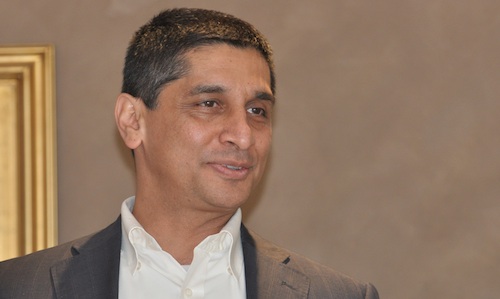
Neotel has doubled the number of retail subscribers on its network in the past 11 months, growing this customer segment from 50 000 to 100 000, according to CEO Sunil Joshi.
However, the company, licensed in the mid-2000s as the first competitor to incumbent Telkom, is still struggling to make much on an impact in the consumer market, with less than 10% of its revenues coming from this base.
Neotel has spent the past five years pouring billions of rand into network infrastructure. Though it’s had success building a strong corporate customer base, it is continuing to struggle to make headway in consumer voice and data services — much to the dismay of South Africans who had hoped it would give Telkom a genuine run for its money.
The company has nearly 7 000km of fibre-optic cables in the ground in SA but access to this high-speed infrastructure is restricted to business customers. Joshi says Neotel now offers fibre access in 14 central business districts in the country but it’s unlikely retail consumer access will be provided any time soon. “It’s a commercial and viability decision case,” he says. “It’s still a while away.”
Joshi says the doubling in the number of retail subscribers is the result of better product and device offerings.
However, with Neotel’s consumer business accounting for only 10% of its revenue, it’s little wonder it’s chosen to focus most of its efforts on the business market. It’s grown its corporate customer base by 84% in the past year.
“We wanted to grow market share in the last financial year,” says Joshi. “The SA market as a whole grew by 4% during the period; Neotel grew by 24%. Clearly we’re doing something right”.
Joshi says one of Neotel’s goals for the current financial year, which ends on 31 March, is to report a profit at the Ebidta level. Ebitda is financial jargon for earnings before interest, tax, depreciation and amortisation. It achieved this in the first fiscal quarter of the financial year, and for the first time since launch. Joshi says the company will finish the year the same way.
He says this suggests Neotel’s strategy is working. “We have 6 900km of fibre in the ground and we’re the only operator with connectivity to all four submarine cables and the fifth one [the West African Cable System, or Wacs] that’s coming later this year.”
According to Joshi, this makes Neotel the only service provider with that level of access and with the “ability to provide ubiquitous connectivity to the east and west of Africa”.
He says part of Neotel’s strategy is to move up Africa’s coasts as cables land, adding that the Southern African Development Community region is important for Neotel. However, when it comes to expansion, the route Neotel will take will be through partnerships with existing infrastructure providers. “We don’t want to build from scratch again like we did in SA.”
By way of example, he points to Telecom Namibia — a minority shareholder in Neotel — which could provide network solutions for Neotel as it expands into that country’s telecoms market.
“Where you have fibre, partnerships work. Where you don’t have fibre, we’ll supply voice and data services via satellite,” Joshi says of the challenges of partnerships in markets with limited fixed infrastructure. “We’re already serving some SA businesses with remote offices this way.”
Joshi says Neotel focuses on Southern Africa while its parent, India’s Tata Communications, serves markets further north.
Neotel says a large number of SA companies are expanding north into Africa and this presents an opportunity for the company to expand into new regions with existing customers. — Craig Wilson, TechCentral
- Subscribe to our free daily newsletter
- Follow us on Twitter or on Google+ or on Facebook
- Visit our sister website, SportsCentral (still in beta)




